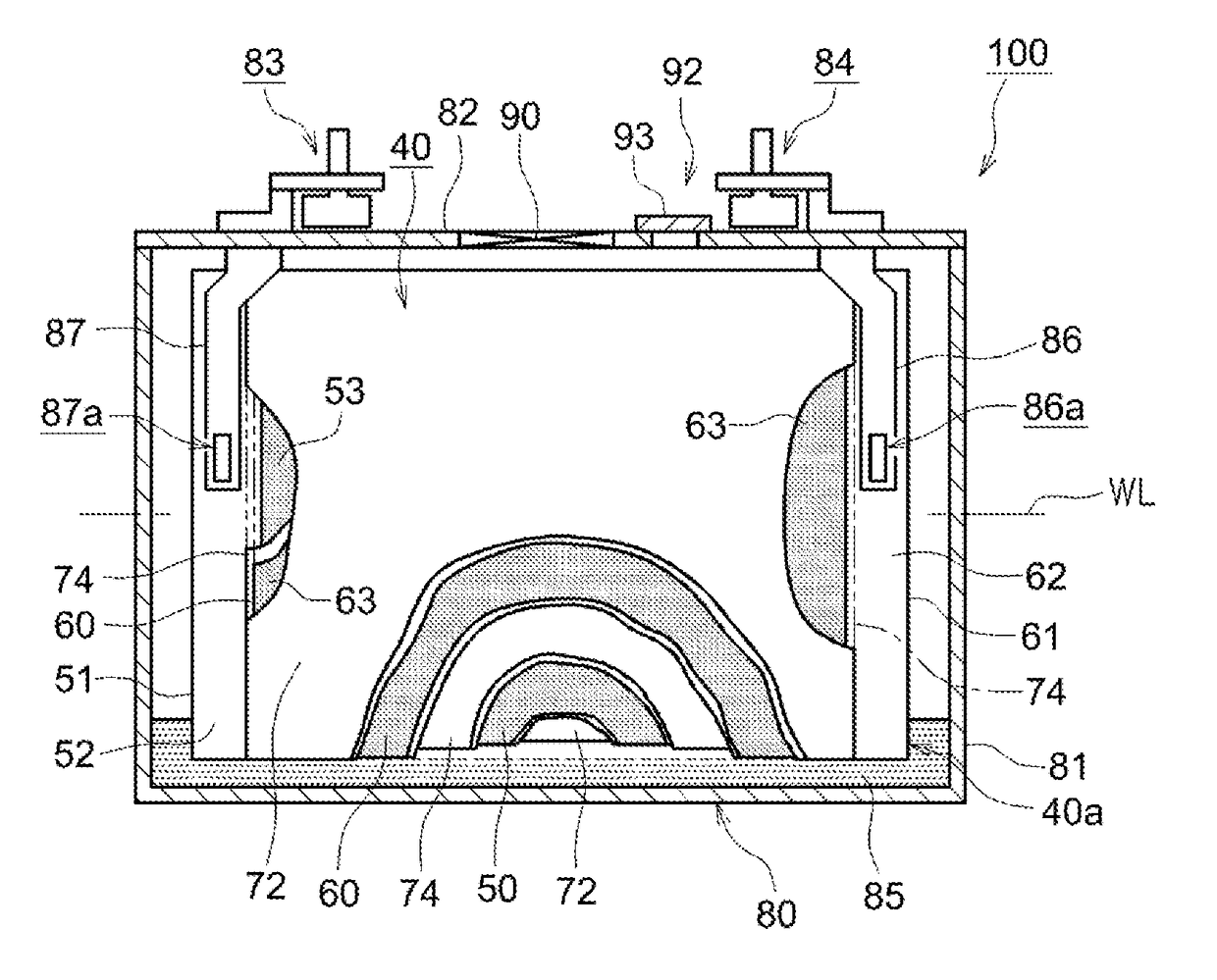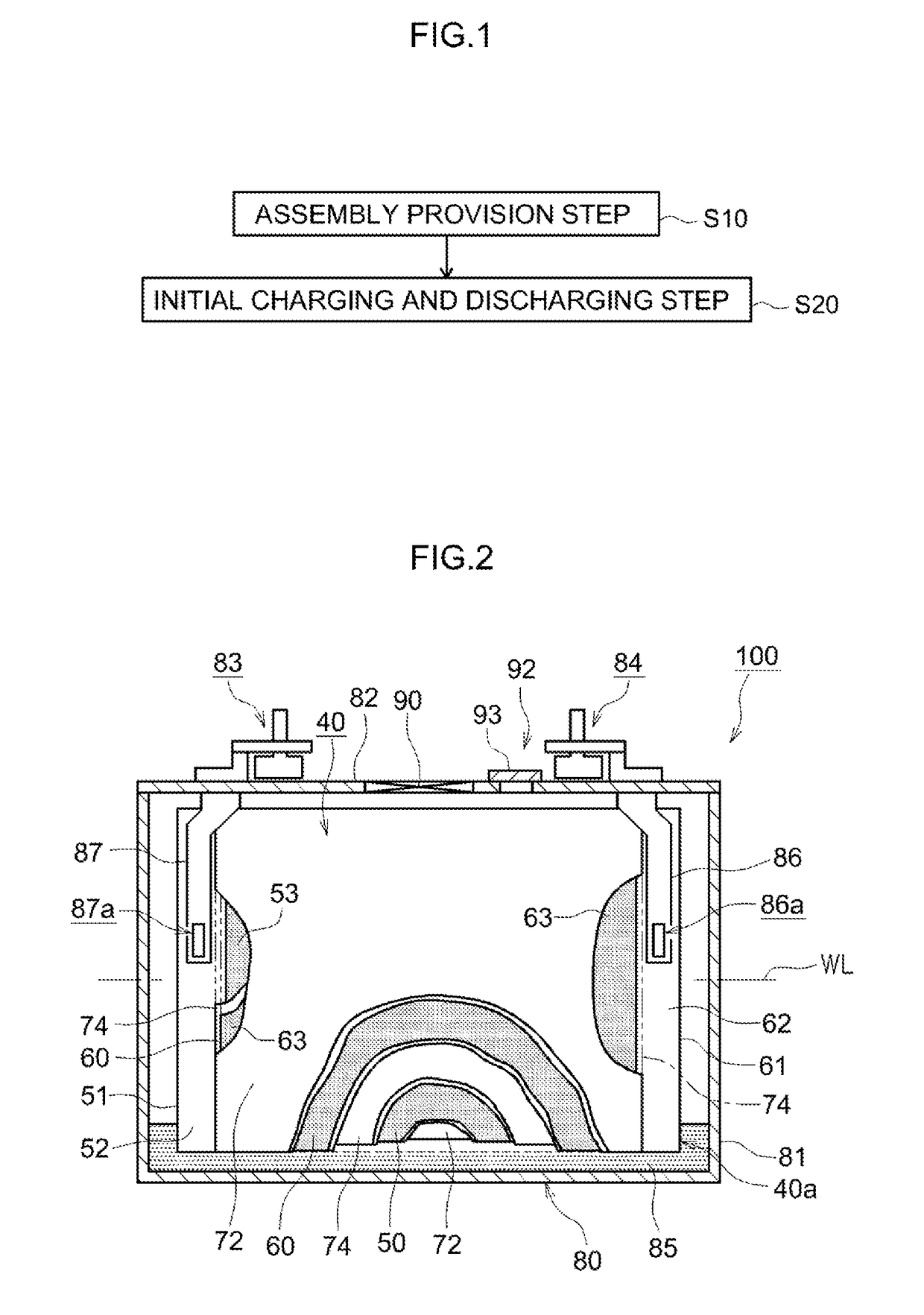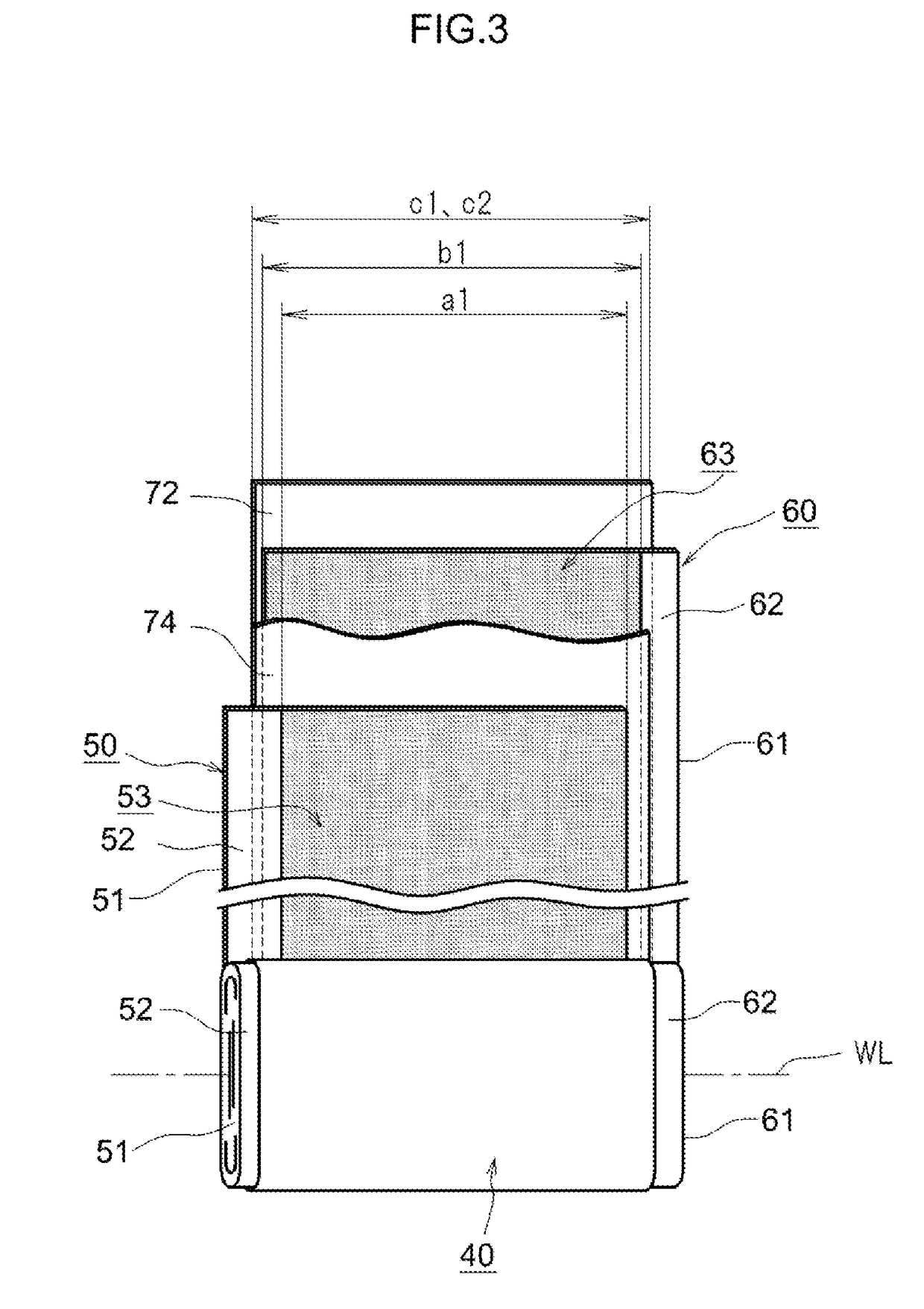Nonaqueous electrolyte secondary battery
Active Publication Date: 2017-10-26
TOYOTA JIDOSHA KK
View PDF6 Cites 0 Cited by
- Summary
- Abstract
- Description
- Claims
- Application Information
AI Technical Summary
Benefits of technology
[0010]In accordance with a preferable one aspect of the nonaqueous electrolyte secondary battery herein disclosed, the P-oxalato compound is lithium difluorobis(oxalato) phosphate (which may be hereinafter abbreviated as “LPFO”). LPFO is favorably decomposed in the initial charging and discharging step, and can form a film derived from the LPFO having preferable properties on the surface of the negative electrode (typically, the negative electrode active material). The film formed using such LPFO can be more excellent in, for example, negative electrode resistance increase suppressing performance.
[
Problems solved by technology
This may cause a degradation
Method used
the structure of the environmentally friendly knitted fabric provided by the present invention; figure 2 Flow chart of the yarn wrapping machine for environmentally friendly knitted fabrics and storage devices; image 3 Is the parameter map of the yarn covering machine
View moreImage
Smart Image Click on the blue labels to locate them in the text.
Smart ImageViewing Examples
Examples
Experimental program
Comparison scheme
Effect test
 Login to View More
Login to View More PUM
 Login to View More
Login to View More Abstract
The nonaqueous electrolyte secondary battery 100 herein proposed is characterized by being manufactured by performing an initial charging and discharging treatment on an assembly, in which are accommodated in a battery case 80 an electrode body 40, and a nonaqueous electrolyte containing a compound expressed by a general formula: A+[PX6-2n(C2O4)n]−, the content of the compound being 1.1 mass % to 1.2 mass % when the total mass of the nonaqueous electrolyte is assumed to be 100 mass %.
Description
TECHNICAL FIELD[0001]The present invention relates to a nonaqueous electrolyte secondary battery. More particularly, the present invention relates to a nonaqueous electrolyte secondary battery capable of exhibiting desirable performances with stability.[0002]The present application claims priority based on Japanese Patent Application No. 2014-209095, filed on Oct. 10, 2014, the entire contents of which are incorporated by reference in the present description.BACKGROUND ART[0003]A lithium ion secondary battery and other nonaqueous electrolyte secondary batteries are smaller in size, lighter in weight, and higher in energy density, and are more excellent in output density than existing batteries. For this reason, in recent years, the secondary batteries have been preferably used as power supplies for driving vehicles such as hybrid cars and electric cars. In this kind of nonaqueous electrolyte secondary batteries such as lithium ion secondary batteries, the nonaqueous electrolyte is p...
Claims
the structure of the environmentally friendly knitted fabric provided by the present invention; figure 2 Flow chart of the yarn wrapping machine for environmentally friendly knitted fabrics and storage devices; image 3 Is the parameter map of the yarn covering machine
Login to View More Application Information
Patent Timeline
 Login to View More
Login to View More IPC IPC(8): H01M10/0525H01M10/0567H01M10/0568
CPCH01M10/0525H01M2300/0025H01M10/0568H01M10/0567Y02E60/10Y02P70/50Y02T10/70
Inventor HARAYAMA, TAKASHITAKAHATA, KOJI
Owner TOYOTA JIDOSHA KK
Features
- R&D
- Intellectual Property
- Life Sciences
- Materials
- Tech Scout
Why Patsnap Eureka
- Unparalleled Data Quality
- Higher Quality Content
- 60% Fewer Hallucinations
Social media
Patsnap Eureka Blog
Learn More Browse by: Latest US Patents, China's latest patents, Technical Efficacy Thesaurus, Application Domain, Technology Topic, Popular Technical Reports.
© 2025 PatSnap. All rights reserved.Legal|Privacy policy|Modern Slavery Act Transparency Statement|Sitemap|About US| Contact US: help@patsnap.com



